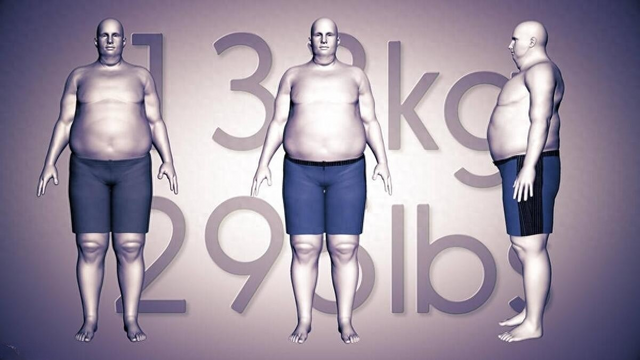The diseases caused by obesity and 3 key methods to help you lose weight healthily!
Obesity is a disease, and excessive obesity can lead to various health problems:
Firstly, obesity is closely linked to cardiovascular diseases, such as hypertension, coronary heart disease, and stroke. Excess fat increases pressure on blood vessel walls, reduces vascular elasticity, and obstructs blood flow, thus increasing the risk of cardiovascular diseases.
Secondly, obesity is a major factor in the development of diabetes. Excess body fat affects insulin function, disrupting blood sugar regulation and potentially leading to diabetes.
Thirdly, obesity can cause respiratory issues, such as sleep apnea syndrome. Fat accumulation in the neck and chest restricts the airways, leading to snoring and sleep disturbances.
In addition, obesity is associated with fatty liver, gallstones, arthritis, certain types of cancer (such as breast cancer, colon cancer), and mental health problems (such as depression and anxiety).
In conclusion, the dangers of obesity to health should not be overlooked. Weight loss is not only about reducing weight or achieving a better body shape, but it is also essential for improving overall health and reducing the risk of diseases.
To lose weight healthily, it is important to avoid extreme dieting and restrictive eating habits. Here are some key points for healthy weight loss:
✅1. Reasonably control calorie intake
Even while losing weight, the calorie intake should not fall below the body’s basal metabolic rate. The body still needs energy to maintain daily physiological functions. If calorie intake is too low, the body may think it is in a "famine" state, reducing metabolism and hindering weight loss.
Maintaining a daily calorie intake of 1000-1200 calories, and replacing high-calorie and overly processed foods with low-calorie, minimally processed foods, is recommended to reduce hunger and promote healthy weight loss.
✅2. Maintain a diverse diet and balanced nutritional intake
A varied diet can meet the body’s full nutritional needs, keep metabolism normal, and prevent over-reliance on a single type of food, which helps reduce food fatigue and uncontrollable cravings.
For carbohydrates, choose high-fiber foods such as oats, brown rice, and whole wheat bread. For protein, include animal sources such as chicken, fish, and beef, as well as plant-based proteins from beans, eggs, and dairy products.
Vegetables and fruits should be diverse as well. Green vegetables such as spinach and broccoli, orange vegetables like carrots and pumpkin, and various fruits such as apples, bananas, and oranges all contribute to a balanced diet and healthy weight loss.
✅3. Exercise appropriately and gradually increase intensity
Exercise is crucial for weight loss. Start with low-intensity exercises, gradually improving cardiovascular function, and then increase intensity over time. Starting with high-intensity exercises might overwhelm the body, leading to exhaustion or injury.
Begin with activities like jogging, cycling, or aerobics, and gradually transition to jump rope, high-intensity interval training (HIIT), or interval running to allow your body to adapt and achieve optimal weight loss results.
Discover how to maintain youth and energy with the Advanced Mitochondrial Formula,Please preview herehttps://shorturl.at/rPFMk
By reasonably controlling your diet and engaging in appropriate exercise, you can achieve healthy weight loss, reduce the health risks associated with obesity, and improve your overall quality of life.





